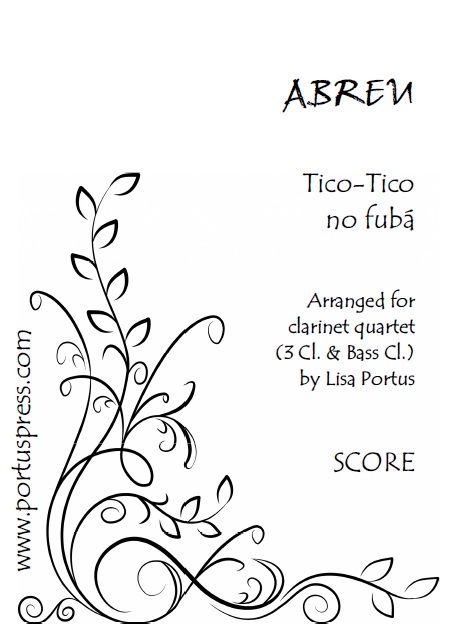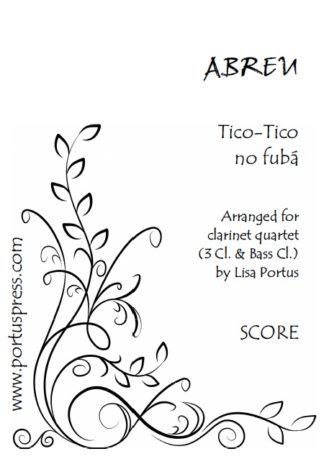Description
Zequinha de Abreu was one of the prominent Brazilian composers of the “Belle Époque” and also one of the earliest and most successful modern Brazilian songwriters. His most well-known work, Tico-Tico no Fubá (which translates roughly as the “Crown Sparrow in the cornmeal”), was written as an instrumental lament (choro) in 1917. The story goes that at its first performance the jumpy, fast-tempo of the number made the dancing couples go crazy in the ballroom!
With added lyrics the music was made internationally popular by the Portuguese-born, Brazilian Broadway star Carmen Miranda who sang a very energetic version of it in the 1947 Groucho Marx film Copacabana. Five years later (17 years after Abreu’s death) came a loosely biographical movie about the composer, also entitled Tico-tico no fubá. Tico-Tico no Fubá has been featured in several other films, most notably in Walt Disney’s 1940s animation Saludos Amigos (in which the song is introduced by none other than Donald Duck) and in Woody Allen’s Radio Days (1987). To this day it remains one of the best known and most arranged of Latin American tunes: here it is presented in an arrangement for clarinet quartet (three clarinets in Bb plus bass clarinet in Bb).



